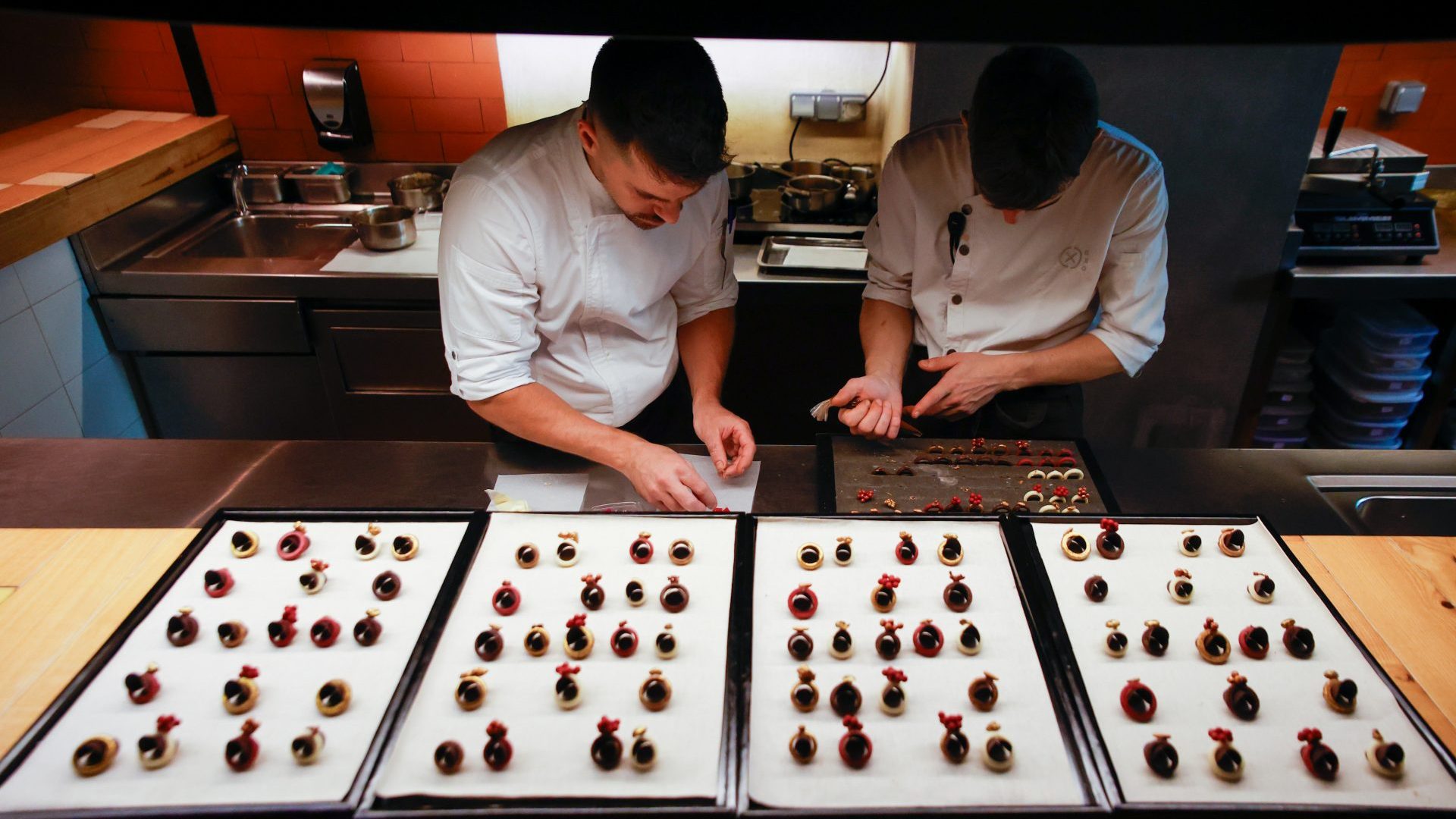Spain – Catalonia to be precise – is leading the way when it comes to progressive high-end dining, at least according to the World’s 50 Best Restaurants list, annual awards now more than two decades old run by UK media group William Reed that celebrate the pinnacle of modern gastronomy.
This year’s winner was Disfrutar in Barcelona, an experiential, experimental place founded by chefs Oriol Castro, Eduard Xatruch, and Mateu Casañas. The trio met at El Bulli, Ferran Adrià’s late Catalan fixture that many believe to be among the greatest and most important restaurants conceived.
It reached No 1 on the ranking five times – a record, shared with Noma in Copenhagen – and, together with El Celler de Can Roca, which has won twice, helped to cement Spain as the most successful country on the list to date.
Denmark isn’t far behind overall, mostly thanks to Noma, but also Geranium, another famed Copenhagen restaurant that scooped the top spot in 2022. Elsewhere, Italy, the UK (the Fat Duck, way back in 2005), France, the United States, and Peru have all seen restaurants triumph.
It might be easy to scoff at the World’s 50 Best. It isn’t short of criticism, with only one restaurant outside Europe and the US to ever win (Central, Lima) and relatively few female chefs and female-led restaurants achieving the highest accolades.
And how is the list quantified? What are the criteria? It is a ranking compiled by more than 1,000 top chefs, restaurateurs and food writers – credible, then – but which is sometimes difficult to fully understand for some lack of transparency.
Then again, at the ceremony this year, the top 50 was peppered by restaurants run by women and dozens from South America, Asia, and one – in South Africa – on the African continent (a first). So perhaps things are changing, improving. The mood was celebratory and positivity abounded.
Regardless, what is far less difficult to recognise is that Spain remains a dominant force when it comes to dining out. A powerhouse, even, echoing the football teams of Madrid and Barcelona, two magnanimous clubs that refuse to desist or lie down time and again.
And yes, there is culinary brilliance to be found everywhere, from Rio de Janeiro to New York, Bangkok to Tokyo. All boast chefs of wondrous creativity and lustrous force; those who seek food as art might do so just about anywhere on the planet these days.
But, for now at least, it would appear we are entering another period of Spanish rule. Because it isn’t just that Spain trotted elegantly into pole position.
In second place this year was Asador Etxebarri, another Catalan shire horse of a restaurant and one that might well roll into first in 2025 – 50 Best often rewards persistence and consistency as it does excellent hospitality, and those in second place might find themselves in first a year later. In fact, three out of the top five were Spanish this year; in fourth was DiverXO, in Madrid.
What is it about Spain, then? The people, fiery as they can be? The produce? I’d say ours is just as good. Possibly it’s that they allow themselves a siesta each day and are therefore not exhausted as we seem to be in the UK?
I think it might come down to food culture again. The Spanish are like the French and Italians, in that food drives so much of the conversation. Lunch is never an afterthought, dinner rarely unprioritised.
To eat there is to live, and to live in Spain is to eat; clearly that preoccupation exists in everyday kitchens as it does in those hoping to be the best in the world.
There are legacies being made in hospitality today. For now, the most impressive might be Spanish.




